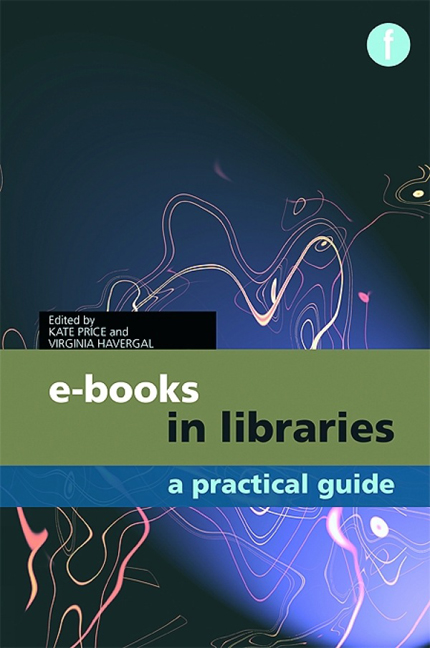Book contents
- Frontmatter
- Contents
- Preface
- The contributors
- Editors’ note
- Introduction
- Part 1 The production and distribution of e-books
- Part 2 Planning and developing an e-book collection
- Part 3 Delivering e-books to library users
- Part 4 Engaging readers with e-books
- Part 5 The future of e-books
- Part 6 Useful information
Part 4 - Engaging readers with e-books
Published online by Cambridge University Press: 08 June 2018
- Frontmatter
- Contents
- Preface
- The contributors
- Editors’ note
- Introduction
- Part 1 The production and distribution of e-books
- Part 2 Planning and developing an e-book collection
- Part 3 Delivering e-books to library users
- Part 4 Engaging readers with e-books
- Part 5 The future of e-books
- Part 6 Useful information
Summary
Overview
E-books are rapidly becoming established as an important element of information provision across the spectrum of library services, and in this section a range of information and library professionals explore strategies to encourage users to embrace e-books as part of their reading practice.
Martin Palmer (Chapter 11) of Essex Libraries explores this from a public library perspective, considering some of the early barriers to ebook use in the public sector as well as investigating the way that the technology has continued to mature and develop. He goes on to highlight how e-books can benefit certain groups of readers, such as those with disabilities, as well as the potential role of e-books within reader development programmes.
The remaining chapters in this section focus on case studies from two FE colleges and a university in the UK. Sue Caporn and Lee Bryant (Chapter 12) of City of Bristol College describe the findings from a small pilot project conducted with Foundation Degree students and examine the attitudes of both students and teachers towards e-books. Meanwhile, Karen Foster and Emma Ransley (Chapter 12) of Yeovil College discuss the ways in which they have used the VLE to enhance the learner experience and increase the use of their e-book collection.
Finally Anne Worden and Timothy Collinson (Chapter 13) of Portsmouth University examine the ways in which undergraduate students have embraced e-books at the institution and consider the factors that have made this format such a success.
- Type
- Chapter
- Information
- E-books in LibrariesA practical guide, pp. 199 - 200Publisher: FacetPrint publication year: 2011



